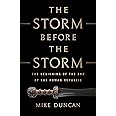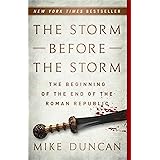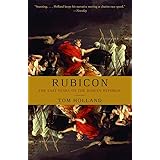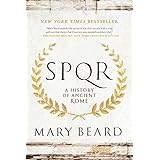
Enjoy fast, free delivery, exclusive deals, and award-winning movies & TV shows with Prime
Try Prime
and start saving today with fast, free delivery
Amazon Prime includes:
Fast, FREE Delivery is available to Prime members. To join, select "Try Amazon Prime and start saving today with Fast, FREE Delivery" below the Add to Cart button.
Amazon Prime members enjoy:- Cardmembers earn 5% Back at Amazon.com with a Prime Credit Card.
- Unlimited Free Two-Day Delivery
- Streaming of thousands of movies and TV shows with limited ads on Prime Video.
- A Kindle book to borrow for free each month - with no due dates
- Listen to over 2 million songs and hundreds of playlists
- Unlimited photo storage with anywhere access
Important: Your credit card will NOT be charged when you start your free trial or if you cancel during the trial period. If you're happy with Amazon Prime, do nothing. At the end of the free trial, your membership will automatically upgrade to a monthly membership.
Buy new:
-45% $19.29$19.29
Ships from: Amazon.com Sold by: Amazon.com
Save with Used - Good
$9.15$9.15
Ships from: Amazon Sold by: Martistore

Download the free Kindle app and start reading Kindle books instantly on your smartphone, tablet, or computer - no Kindle device required.
Read instantly on your browser with Kindle for Web.
Using your mobile phone camera - scan the code below and download the Kindle app.

OK
 Audible sample Sample
Audible sample Sample 


The End Is Always Near: Apocalyptic Moments, from the Bronze Age Collapse to Nuclear Near Misses Hardcover – October 29, 2019

Explore your book, then jump right back to where you left off with Page Flip.
View high quality images that let you zoom in to take a closer look.
Enjoy features only possible in digital – start reading right away, carry your library with you, adjust the font, create shareable notes and highlights, and more.
Discover additional details about the events, people, and places in your book, with Wikipedia integration.
Purchase options and add-ons
Now a New York Times Bestseller.
The creator of the wildly popular award-winning podcast Hardcore History looks at some of the apocalyptic moments from the past as a way to frame the challenges of the future.
Do tough times create tougher people? Can humanity handle the power of its weapons without destroying itself? Will human technology or capabilities ever peak or regress? No one knows the answers to such questions, but no one asks them in a more interesting way than Dan Carlin.
In The End is Always Near, Dan Carlin looks at questions and historical events that force us to consider what sounds like fantasy; that we might suffer the same fate that all previous eras did. Will our world ever become a ruin for future archaeologists to dig up and explore? The questions themselves are both philosophical and like something out of The Twilight Zone.
Combining his trademark mix of storytelling, history and weirdness Dan Carlin connects the past and future in fascinating and colorful ways. At the same time the questions he asks us to consider involve the most important issue imaginable: human survival. From the collapse of the Bronze Age to the challenges of the nuclear era the issue has hung over humanity like a persistent Sword of Damocles.
Inspired by his podcast, The End is Always Near challenges the way we look at the past and ourselves. In this absorbing compendium, Carlin embarks on a whole new set of stories and major cliffhangers that will keep readers enthralled. Idiosyncratic and erudite, offbeat yet profound, The End is Always Near examines issues that are rarely presented, and makes the past immediately relevant to our very turbulent present.
- Print length288 pages
- LanguageEnglish
- PublisherHarper
- Publication dateOctober 29, 2019
- Dimensions6 x 0.97 x 9 inches
- ISBN-100062868047
- ISBN-13978-0062868046
Frequently bought together

Similar items that may deliver to you quickly
Editorial Reviews
Review
“A master of storytelling, Dan Carlin uses vivid detail and intuitive empathy to imagine what it was like to live through the end of the world....Carlin’s engaging and accessible style invites us to ponder the rise and fall of civilizations and ask where we are headed. The end of the world is not merely a catastrophe that waits for us down the road; it is a ghost that haunts the places we’ve already been.” — Mike Duncan, New York Times bestselling author of The Storm Before the Storm
“This is the perfect thought experiment for anyone who believes the world is doomed, if only to remind them of one essential reality: the world has always, always seemed doomed...It feels odd to classify a book about barbarians and flu pandemics and the morality of nuclear war as fun, but that’s the single best modifier for The End is Always Near. It’s an apocalyptic discotheque.” — Chuck Klosterman, author of But What If We’re Wrong?
“ Carlin serves as a notable example of… a person who can discuss issues deeply and idiosyncratically.” — Los Angeles Times
“For podcast fanatics, each new release is akin to the Super Bowl….Host Dan Carlin, a former radio broadcaster, brings both passion and showmanship as he unspools historical narratives with a flair for tension and intensity.” — AV Club
“ Carlin puts the ‘hardcore’ in Hardcore History by focusing his narratives on the most violent and dramatic moments in human history, filling his show with colorful anecdotes that were most likely left out of your high school history class.” — Time
“Walking listeners through Operation Barbarossa, the German attempt to capture Moscow, the Battle of Stalingrad, and Germany’s ouster from the Soviet Union, Carlin is a wide-eyed, colorful guide to a dreadful story.” — Slate
About the Author
Pioneering podcaster Dan Carlin is the king of long-form audio content. With his Hardcore History shows sometimes topping out at over six hours long, Carlin humanizes the past and forces the audience to “walk a mile in that other guy’s historical moccasins.” Hardcore History has been downloaded over 100 million times.
Product details
- Publisher : Harper; First Edition (October 29, 2019)
- Language : English
- Hardcover : 288 pages
- ISBN-10 : 0062868047
- ISBN-13 : 978-0062868046
- Item Weight : 14.4 ounces
- Dimensions : 6 x 0.97 x 9 inches
- Best Sellers Rank: #34,897 in Books (See Top 100 in Books)
- Customer Reviews:
About the author

Discover more of the author’s books, see similar authors, read author blogs and more
Customer reviews
Customer Reviews, including Product Star Ratings help customers to learn more about the product and decide whether it is the right product for them.
To calculate the overall star rating and percentage breakdown by star, we don’t use a simple average. Instead, our system considers things like how recent a review is and if the reviewer bought the item on Amazon. It also analyzed reviews to verify trustworthiness.
Learn more how customers reviews work on Amazon-
Top reviews
Top reviews from the United States
There was a problem filtering reviews right now. Please try again later.
The scope of this book is more broad than a typical Hardcore History topic - and touches on many things covered in past podcasts, but in different ways. The early parts of the book deal with the end of the Bronze Age, the fall of the Roman Empire, the impact of plagues throughout history, and others, and then moves on to modern age concerns about "ending it all" with nuclear weapons.
As Dan Carlin refers to himself, he's a fan of history, not a historian. Well, I'm a fan of history but far less well-read than him. I think one of his strong points is that he presents facts - or maybe "viewpoints" is more accurate - from different sources and isn't trying to push an agenda. He's good about presenting many varied sources and using quotes from historical figures and historians to flesh out the work. He essentially plays devil's advocate for issues such as the ethics of using nuclear weapons to end WWII.
Dan Carlin does an excellent job of condensing and coalescing sources to present a fascinating big picture. This book is entertaining, well written and informative, and perhaps most important - it's thought-provoking. If we want to call this "pop history" that's fine with me. I love history but dry, uninspired historical texts are why many people say they "hate" history. This isn't fluff, though, by any means. If you want to spend time considering the ethics of dropping nuclear bombs on Hiroshima and Nagasaki in the context of the ongoing campaign of extensive firebombing that had been hitting Japan in the months prior to those events, well, Dan will get you thinking.
I appreciate Dan's (I can't help but think of him as "Dan") ability to condense and coalesce lots of sources to bring together a big picture. Over the years his delivery has improved and he has a flare for the dramatic - which is not to say that he's over-the-top, but his voice is emotive and he presents his well-researched material in a way that I always find compelling.
As a first book I think this is a challenging, broad and fascinating effort. I want Dan to write more, but I want him to put out more podcasts....but I want him to write more...but I want him to put out more podcasts....the true dilemma of the Hardcore History fan.
I look forward to his next book and his next podcast episode.
While this wasn't a podcast, I could almost hear his voice as I read different passages! He does touch on some similar topics from his podcast, but it's still a great read. If you never found history interesting or exciting, you will enjoy this book (get it for someone who fits that category). If you're an avid historian, you will REALLY enjoy this book.
On a side note, I noticed that several reviewers of the audio version of this complained about the system glitches and, as a result, rated Dan's work with 1 or 2 stars. NOT reflective of the content. They remind me of people who rate a product poorly because something was wrong with the packaging or delivery experience; totally miss the point. At any rate, Dan Carlin's book (print or audio format) is well worth your time.
Carlin covers the Bronze Age collapse, the fall of the Assyrian and Roman empires, and the devastating physical and psychological effects of famine, plague, total war, and potential nuclear annihilation.
This is not exactly light or uplifting reading for the holiday season, but that’s the point. Carlin is suggesting that perhaps the state of perpetual peace and stability we are seemingly living in is making us soft and vulnerable to an unexpected calamity that we are no longer tough or resilient enough to endure. We may think that our comfortable lives will go on uninterrupted indefinitely, but then again, so did the Romans, along with the Assyrians, Babylonians, and ancient Egyptians and Greeks. As Carlin asks the reader:
“Can you imagine the city you currently live in as a desolate ruin? Will it one day be like most cities that have ever existed, or not? Either outcome seems fascinating.”
As Carlin narrates the calamities of the past, the reader is confronted with the question of whether or not our civilization is really immune from any of these apocalyptic scenarios. We may live with advanced technology, but our proclivity for tribalism, superstition, and war is always bubbling under the surface. Might we simply be waiting for the next incurable pandemic or total war or catastrophic nuclear or ecological disaster? As Carlin wrote:
“There have always been large wars between the great powers. Any next such war would involve nuclear-armed states. World War III sounds like a bad movie concept, but is it any more unlikely than eternal peace between the great states?”
The idea that humanity has already faced its greatest challenges on all fronts (disease, war, natural disasters, famine, and political upheaval) seems to be very unlikely. And it is precisely this complacent frame of mind that makes any civilization most susceptible to catastrophe. As Carlin wrote, when discussing the possibility of nuclear annihilation during the Cuban Missile Crisis:
“Samuel Johnson is supposed to have said, ‘When a man knows he is to be hanged in a fortnight, it concentrates his mind wonderfully.’ For that two-week period [the Cuban Missile Crisis], when all seemed near lost, humankind treated the threat with the level of gravity it deserved. In a perfect world, we would be able to do this continuously, but history has shown that the lesser aspects and banalities of life have a way of intruding.”
In other words, it could be the case that our underestimation of existential risks ironically makes them much more likely to occur.
On the other hand, and despite all of this, there is some cause for optimism. We certainly know more today about the containment of infectious disease, for example, and we also know that no two democracies have ever gone to war with each other. As long as our medical and political science stay one step ahead—and constant vigilance is maintained—we may in fact be able to avert the next deadly pandemic or total war.
More importantly, there is an argument to be made that we have also made some moral progress, having grown increasingly averse to war and violence. As Carlin pointed out, after the end of the Second World War, the United States was the only country in the world to possess nuclear weapons. Yet despite the urgings of several American military leaders to attack the Soviet Union, the US did not initiate a nuclear attack on its primary global competitor when it had the opportunity to do so.
As Carlin wrote:
“What would Julius Caesar, or Alexander the Great—or Hitler, for that matter—have done with a monopoly on nuclear weapons? Not use them? If you gave the great Carthaginian general Hannibal nuclear weapons in his life-or-death struggle with the Roman Republic, handed him the button, and said, ‘If you push this, all of Rome will be devastated,’ does he push it, or does he say, ‘Maybe I should think about this?’”
Whether or not you think the US was justified in dropping atomic bombs on Japan to end the war (perhaps saving more lives in the process), its decision to not use them on the Soviet Union when they had a nuclear monopoly can be considered progress of a kind.
To Carlin’s credit, he prefers to ask the questions rather than answer them. By his own admission, he is a fan and popularizer of history, not a historian. His strengths lie in his ability as a master storyteller and clever inquirer, which are on full display in this book. But it is the reader who is ultimately left to decide whether or not the future will resemble the past.
Carlin leaves the reader to contemplate several questions, the most critical of which may be whether we should de-modernize the world to prevent environmental disaster or whether the very societies that create the greatest ecological and military risk are the most likely to, for example, cure the next pandemic or divert an incoming asteroid. In the end, the question is whether or not we will use our technology for good or evil, or whether we are up against so many threats that, sooner or later, one or the other will lead to civilizational collapse. Since no one can foresee the future, these are not easy questions to answer.
In closing, I’ll point out that there is a more cynical interpretation of the book that would consider it to be a series of loosely connected essays regurgitated from the podcast. Since Carlin is not advancing any original thesis, it’s possible that a fan of the podcast would already be familiar with much of the content. Not being very familiar with the podcast myself, I can’t really say. But without that knowledge, I can easily recommend the book on its own merits as a fascinating narration of our more gruesome past and as an important philosophical exploration of humanity’s future.
Will open up your mind for new ideas
Top reviews from other countries
1) fin de l'age de bronze. Pour moi le plus intéressant et le moins connu. C'est un retour à l'age de pierre pendant plusieurs siècle jusqu'à l'antiquité.
2) fin de l'empire romain. Il parle uniquement des invasions barbares mais pas du tout de la malaria ni des changements climatiques et famines.
3) la peste noire.
4) la guerre nucléaire et ses risques pendant la guerre froide (et dans le futur)
Si vous connaissez mal ces périodes je vous recommande ce livre, mais si vous connaissez déjà ça sera juste un livre intéressant sans plus. Il ne rentre pas non plus à fond dans les détails.
I feel close to him even though I know very little about the baseball cap-wearing author. It’s because for many years I have been fascinated by his long-form monologues that are only released a couple of times per year - the longest goes on for over 9 hours! Most of Dan Carlin’s audio work I’ve heard several times by now. Ghosts of the Ostfront and the episode about Anabaptists are my personal favourites that I would highly recommend listening to if you own, or plan to read this book. Even though it’s very US-centric I also appreciate his political Common Sense podcast, that he unfortunately mothballed.
This book is essentially about the decline of civilisations and the disintegration of economic/political systems. Each chapter studies a historical disaster, its origins and examines the likelihood of reoccurrence. The book will transport the reader through a sequence of historic periods. It is mostly top down-history, as opposed to bottom-up little facts and details, that will force you to think about how the course of history could have been very different.
The overall message I guess is that most of us have an inherited (and evolutionary-required) optimistic bias. However catastrophic events have happened and will happen. The recent pandemic experience has made it clear to everyone that despite an unusual stretch of peace and property a stable, safe and sheltered existence could turn around quite rapidly.
Obviously I very much appreciate the author’s insights, his excellent, unique and passionate manner of story telling and how he manages to intertwine history with philosophy and human behaviour. Dan does thorough research on each topic, then presents his findings in a nuanced manner. However he doesn’t provide answers, he rather puts things in perspective and asks intriguing questions. I love the approach but I should perhaps warn that the author’s narrative usually requires some thought and concentration.
The individual events in the book aren’t very closely tied together except for the general narrative on top about how things could change. Moreover compared to his many hours of audio work this book is merely an overview. More like a written ‘best of’ collection of his podcasts; the Bronze age collapse, the Assyrians, the Cuban Missile Crisis, the Black Death ect. The drawback of this approach is is that most topics are only touched on the surface while for the book I had expected the author to dive a little deeper into each specific topics. Yet whenever the book actually its distracts a little from the broader message. Also like all teachers and mentors Dan tends to repeat certain issues and views that are dear to him. For example nuclear war and mutual assured destruction is one of his recurring themes. So most of the topic and thoughts were familiar to me and I didn’t find the book as thought-provoking as it should be to others.
Nevertheless, it is a book that is worth reading. And I’m glad I could add it to my extensive collection of history books. Similar to some of my other favourite podcasters I would buy his book both out of interest and to support the author. Certainly in Dan Carlin’s case who has been my moral compass and guiding light in the undercroft of history for many years. As such I’m thoroughly biased in my review of this book but have nevertheless tried to provide an objective view.
Reviewed in the United Kingdom on March 26, 2020
I feel close to him even though I know very little about the baseball cap-wearing author. It’s because for many years I have been fascinated by his long-form monologues that are only released a couple of times per year - the longest goes on for over 9 hours! Most of Dan Carlin’s audio work I’ve heard several times by now. Ghosts of the Ostfront and the episode about Anabaptists are my personal favourites that I would highly recommend listening to if you own, or plan to read this book. Even though it’s very US-centric I also appreciate his political Common Sense podcast, that he unfortunately mothballed.
This book is essentially about the decline of civilisations and the disintegration of economic/political systems. Each chapter studies a historical disaster, its origins and examines the likelihood of reoccurrence. The book will transport the reader through a sequence of historic periods. It is mostly top down-history, as opposed to bottom-up little facts and details, that will force you to think about how the course of history could have been very different.
The overall message I guess is that most of us have an inherited (and evolutionary-required) optimistic bias. However catastrophic events have happened and will happen. The recent pandemic experience has made it clear to everyone that despite an unusual stretch of peace and property a stable, safe and sheltered existence could turn around quite rapidly.
Obviously I very much appreciate the author’s insights, his excellent, unique and passionate manner of story telling and how he manages to intertwine history with philosophy and human behaviour. Dan does thorough research on each topic, then presents his findings in a nuanced manner. However he doesn’t provide answers, he rather puts things in perspective and asks intriguing questions. I love the approach but I should perhaps warn that the author’s narrative usually requires some thought and concentration.
The individual events in the book aren’t very closely tied together except for the general narrative on top about how things could change. Moreover compared to his many hours of audio work this book is merely an overview. More like a written ‘best of’ collection of his podcasts; the Bronze age collapse, the Assyrians, the Cuban Missile Crisis, the Black Death ect. The drawback of this approach is is that most topics are only touched on the surface while for the book I had expected the author to dive a little deeper into each specific topics. Yet whenever the book actually its distracts a little from the broader message. Also like all teachers and mentors Dan tends to repeat certain issues and views that are dear to him. For example nuclear war and mutual assured destruction is one of his recurring themes. So most of the topic and thoughts were familiar to me and I didn’t find the book as thought-provoking as it should be to others.
Nevertheless, it is a book that is worth reading. And I’m glad I could add it to my extensive collection of history books. Similar to some of my other favourite podcasters I would buy his book both out of interest and to support the author. Certainly in Dan Carlin’s case who has been my moral compass and guiding light in the undercroft of history for many years. As such I’m thoroughly biased in my review of this book but have nevertheless tried to provide an objective view.


















